Archive for the ‘Autobiographica’ Category
Entry 1757 — My New Blog Set-Up
Thursday, March 19th, 2015
My new blog’s homepage, which I hope will allow you a choice of four blogs, is here. It is operational, but the three new blogs have nothing in them yet. I consider it an achievement that I even have it to the stage it is now at.
I’d appreciate it if you would click “here” and then go to any of the three new blogs you think you may bisit again when there’s something at them. That will give me at least a little idea of what kind of nuts come here. Thanks!
A second entry point can be found in my Pages to the right as “Bob Grumman BLOGS.”
Now to celebrate the first day of my Blog-Quartet, below is my latest visual poem, thought of and rendered in full yesterday. Not very original, but it won’t be a stand-alone but the dividend of a long division poem now complete but for the rendering. It uses the notes I had here a few days ago . . . no, almost two weeks ago.
Entry 1756 — My Audience
Wednesday, March 18th, 2015
From time to time I wonder about who my blog’s visitors are. Each entry seems to get between ten and twenty visitors the first day it’s up. After that, more visit it but I still don’t know how the count is made. I don’t know, for one thing, whether or not the counter counts a visit to one day’s entry as a visit also to all the other entries on my home page.
A few times I’ve happened on some site that claims to give a count of blogs’ visitors and says I have around a hundred. Enough to give the blog a value of $3.45 or something.
Much more important to me would be learning something about my visitors. I consider this blog before anything else to be a workshop for ME, as well as a sometimes fun place for me to play around with ideas. But I also want very to use it to gather some kind of following. When I began blogging two (I think) blogs ago, I intended to cover poetry only. I’ve wandered way off-topic since then, expecially in the past few years. Ideally, I would continue this blog, but devote it to poetry (and related arts, I guess) only–except for an occasional update on ME. (Note: this “ME” is my attempt to indicate that ME is every bit as important as I!)
I would (and a few times have misfired off into) also running a blog on politics. A third on my psychology would be good, too. Maybe I’ll do it, who knows. Not today, though. If I do, my goal will be to write at least one entry a day which could be for any of the three. That makes great sense.
I see that I’ve solved one of my problems about visitors, which is figuring out how many care (1) only about my poetry entries; (2) only my psychology . . . okay, crackpot . . . entries; (3) only about my (wholly rational) political entries; or (4) some mixture of the three. Needless to say, I wish I could find out more about you peeperz. I’m sure of the identity of about five of you, no more.
I should try another survey sometime. The only one I’ve tried so far asked if anyone had found an entry of mine worth reading past the first few sentences. 33 said yes before I stopped keeping it on my home page.
I just checked and found 11 had voted “No,” but the count went up to 16 as I was at it, making a few minor revisions. Ergo, more reason for me not to trust my counters. And makes me hope one of you might tell me how to get a reliable counter for my (WordPress) blog.
.
Entry 1751 — Lesson 1
Friday, March 13th, 2015
I have an excuse to avoid truly beginning my lesson in how to compose an otherstream poem: another medical procedure, this one a sound scan of my thyroid. Routine, I guess because I’m hypo-thyroidal. Only took ten minutes. Errands followed. So, I’m barely unnull. Nonetheless, I will try to get my lesson in today, beginning with lead-in excerpts of poems by Cummings, then the original (and now final) version of my (full) ooem:
* * *
* * *
* * *
* * *
If I were in a high school or college teaching this lesson (which, nota bene, is for absolute beginners, although I hope anyone reading it will learn from it), I would pass out hand-outs with the poems above on them to the students (student?). Then:
IF YOU WANT TO COMPOSE ANY KIND OF POETRY:
Dictum 1: READ POETRY!!!
(I’m tempted to end my first lesson there, but–heck–you’re all my good friends! I can’t cheat you.)
Listening to poetry is okay, but reading it means you have it continuingly in front of you, so seems to me better. It’s also difficult to attend readings or buy recordings compared to getting books or magazines with it, or going online after it. In any case, I will be referring to printed poetry only.
I suspect anyone teaching a how-to-course in any kind of literature will tell you the same thing. That doesn’t mean it’s wrong. In fact, it’s received wisdom, and received wisdom is right much more often than not. This bit of received wisdom is maxolutely valid–i.e., it could not be more valid.
The more you read poetry, the more of an idea of what it is you will get. Beyond some dictionary’s probably inept, and certainly incomplete definition of it. But by far the most important reason for reading poetry is to find poems you like! And you will find a few before long, even if you read only publications recommended by college professors or other authorities if you seriously intend to compose poetry–as either a hobby (and there’s nothing wrong with that) or a vocation.
If you get through a few hundred poems and find none that genuinely excite you, ask someone who’s been around (like me) where to go for poetry different from what you’ve been reading. If that doesn’t help–if, that is, you sincerely explore a reasonable wide variety of poems and are not excited by any of them, accept that you’re simply incapable of appreciating poetry–as I am incapable of appreciating gymnastics. So what.
I should think anyone who knows enough about poetry to want to compose it will find poems that he really likes. When this happens, as common sense would indicate, he must find out who wrote them, and look up that poet’s other poems. If this goes well, he will automatically be strongly attracted to one or more, enough to become at least temporarily addicted to his work.
SubDictum 1: When you have found a poet whose work you are extremely drawn to, read everything you can about his life. If you feel like it. I add that, and make this rule a “SubDictum,” because I followed it with great enjoyment and, I think, got a useful push from my vicarious identification with various literary heroes of mine. But it won’t make a poet of you, and I suspect there are those without my interest in poets rather than their work, or literary history. In short, ignore this SubDictum if you have little urge to follow it.
Dictum 2: This is my first teaching that a lot of poets and not all that few teachers of poetry will reject. In fact, I would agree that it is not necessary for one wanting to become a poet; however, it is necessary, in my opinion, for one who wants to become among the best poets. Those I therefore direct to read as much commentary on the poets whose works you most enjoy as you can. Poetry criticism be Good! So what if much of it, maybe most of it, is not too good; 90% of poetry is mediocre or lousy, too. So read as much as you can, and zero in on those whose commentary you enjoy the way you zeroed in on poets whose poems you enjoyed.
One important thing they should do for you is path you to other poets writing work like the ones you like do. Negatively-Positively, they may expose you to flaws in a favorite of yours that helps you to appreciate up to a higher level of enjoyment. They should introduce you, in their negative commentary, to poets whose poor work will increase your appreciation of inferior work, which it is important to learn. Or perhaps make you realize there’s poetry out there the critic doesn’t like but you do. And you will begin developing a critical view of your own.
Dictum 3: WRITE POEMS!!!
Start by imitating the poems you’ve found you like. Remember that you are just beginning and that it takes time to become anything of a poet. In the meantime, it should not take too long for you to experience the happiness of effectively imitating something a hero of yours has done. The chances are 999 to 1 that it will be part of a sub-mediocre poem, but that’s of no consequence. Every poet’s first attempts are poor. Regardless of the mothers or friends or teachers who praise them.
At this point I was going to show the value of imitation using the four texts above. While writing my way to here, however, I realized that I should have used an earlier example of my own work. I wrote a fair amount of bad imitative poetry when I began, and nothing any good until I was around 25 and wrote my “traffic” poem above. It’s a bad example, though, because (in my opinion) quite good, although imitative. There are special reasons for its success. One is that it’s based on the simplest poetic form, the Classical American haiku form (which is derived from the form the Japanese invented–apparently–but significantly different from that in ways I won’t go into right now). What’s more, the Classical American Haiku form is extremely explicit, and therefore easy to get technically right.
* * *
I feel I could keep going for at least a few more full paragraphs but I also think I’ve reached a good stopping point, and have a topic to discuss which may take a while to get through: haiku-sensitivity, which I think a person is either born with or will never have, and I have it. Urp.
.
Entry 1727 — Re: Kinds of Views
Tuesday, February 17th, 2015
I feel I have very few 100% views. I also believe that if I were able to express all my political and religious views, my average view of just about everything would be right in the middle. However, this would be completely accurate, for my median view–
Ooops. I mean the mode, er . . . modal? view. I was best in my 5-unit college class in statistics but, except during the time I took the course, have never been able to remember the differences between “mean,” “mode,” “median,” and “average.” Well, the last was permanently imprinted on my brain by my brother Bill when he taught me what batting averages, and decimal numbers were when I was eight or nine. I will leave the terms alone, but I can barely contain neologomaniacal urge to find better names for these things. I’d dump “mean,” and use “average,” which seems much better known. How about “midvalue” for “median?” Although “median” is fine. “Mode” is the only one that bothers me. “Emphaterm?” I’m not serious.
Back to my views, which are not in the middle of everybody else’s but to one extreme of the other of everybody else’s. (Mostly.) Okay, I am maxilutely convinced (i.e., 99.9999% convinced) that Will Shakespeare wrote Hamlet–although bits of it may have been added or subtracted by others–and therefore maxilutely convinced that those who disagree about this who have studied the matter are psitchotic, fully psychotic, or extremely stupid. I am 57.32% convinced that a few well-placed neutron bombs would immensely improve the world in the long run (i.e., the happiness the survivors would experience over the next hundred years would make up hugely for the unhappiness they would experience over the next ten years, and it is likely that fewer would lose their lives due to war than the bombs killed, although that would depend on the right people’s being sufficiently in power to control the world after the bombing). I use this example (and would add that I doubt I’d be able to order such a bombing as US president, unless under serious attack by some other nation) knowing the knee-jerk reaction to it of far too many in order to exemplify honesty.
Which veers me into cursing the way-too-many who can’t simply disagree with others’ view, but must condemn those holding them as monstrously evil on both sides of the electorate, but most visibly, it seems to me, on the left–probably because they are in control of the media. I’m 80.811% in favor of going all-out to find a way of separating those capable of objectivity about politics and religion and those not, and taking the right to vote or hold office or other consequential government position away from the latter–with certain exceptions, like allowing generals, admirals and police chiefs to have political or religious psitchoses. On this question, as on many others, I feel I would be open to reasonable compromises. I could even convert to the other side on issues I was less that two-thirds convinced of.
The book I had an intense desire to spend all my writing time except emails, Internet exchanges and blog entries for a few hours a week or so ago, and still hope to clear time for a strong effort at would be in part my describing as many of my emphatermic views as possible. (I see the adjective for “emphaterm” stinks. That’s enough to completely kill it. I think nouns should always be easy to smooth into adjectives.)
“Emphanoom”: noun meaning “mode.” Adjectival form: “emphanumeral.”
When I open this space for this entry, I just happened to be thinking about the kinds of views I have–mostly (semi-intelligent, I think) extremist views. I intended to jot that down, although I’ve written about it before, then just kept on going, although eager (thanks to a zoom-dose, or caffeine plus a hydrocodone pill) to get on with my review of Sabrina Feldman’s The Apocryphal William Shakespeare. Now I have well over 600 words, enough to want to hit a thousand for the entry, which is stupid: I should not care how many words I devote to a piece of writing, only care about writing what my topic requires, no more, no less. But shooting for something I can quantize is near-impossible for me to resist–continues Robert as he crosses the 700-word mark . . .
. . . and returns to the subject of neutron-bombs to criticize one of his favorite cultural figures,, Isaac Asimov, for saying, Isaac Asimov also stated that “Such a neutron bomb or N bomb seems desirable to those who worry about property and hold life cheap.” One view of mine that is severely blasphemous (because so many people hold human life as sacred) is that property (other than the bodies people live in) can easily be more valuable than human life, because in so many cases capable of causing more human happiness than the continued existence of a substantial number of people–in ways other than simply removing a hundred people who, un removed, would have killed a thousand people, or the like. But even from a sentimental point of view, what Asimov said was dumb since a neutron bomb would almost certainly be used in place of a regular nuclear bomb, so probably not causing many more deaths than not using it would.
* * *
Hey, I just thought of something I meant to bring up about how my Poem poems differ from the mainstream poems of our time: their flow-breaks are more adventurous. This, by itself, should make them capable of greater expressiveness, but only does so slightly. However, it does make them harder to speed-read, which I consider a cardinal virtue of any poem so long as not over-done (and here, as I guess is the case more frequently than I’ve suggested above, I’m in a neither too little or too much middle).
I’m usually too lazy to spend much time on my flow-breaks (in my solitextual, or textual-only, poems), which are mostly standard line-breaks, but often enough include interior line breaks or infraverbal li breaks (like the one I just made) for my flow-breaks to be noticeably different than the standard ones of mainstream poems.
Here I remembered the Asimov passage I spent some time on above, and crossed the thousand-word mark discussing above. So I can quit working on this entry now, with no entry needing to me written tomorrow., which is especially good, because I have tennis in the morning and a doctor’s appointment in the afternoon (about my esophagus, which may have some kind of obstruction, but I don’t think it does, nor that it will be a serious on if I do . . . not that I’m not worrying about it, as I always do about physical things not quite right with me.
.
Entry 1716 — “Bar Cripe”
Friday, February 6th, 2015
While going through my diary in search of accomplishments, I came across a poetry exercise I’d begun in March: the standard write-a-poem-a-day exercises many have tried–spontaneously, without worrying about whether or not what you wrote was any good. I’d forgotten all about it even though I wrote 39 Poem poems over the course of 39 day, putting them in my diary entries but not here (so far as I know). Often I wrote how bad they were although once in a while I thought one had possibilities. I just skimmed through them yesterday, but collected them into a single file and printed them after noticing a few I thought I might make something of. Looking over my print out, I read the very last poem of the series, and thought it possibly one of my best ever, so decided to feature it in this entry:
Actually, the above has been slightly revised. I had trouble carrying its formatting over into this entry, and at one point accidentally stuck the end of it under the rest of the poem tilted. I liked the effect, so used it as shown. Some of it depends on a reader’s knowledge of other Poem poems of mine, but I think it reasonably accessible to anyone who has read widely in poetry without know my poetry. I love the ending. Note: I myself am unsure exactly what a few locutions mean but keep them for what seems to me their tonal effect.
.
Entry 1715 — “Long Division of Dreams, No. 1″
Thursday, February 5th, 2015
The assignment I assigned myself today was to summarize the year I just had. I wrote an excellent paragraph about it, so my computer went into a loop that forced me to restart it, thus killing my paragraph. That’s the way my new year has been going so far.
I remember beginning my entry saying that my impression of year number 74 was that it was a complete zero. Not so, of course, but the only moderately high moment I could recall was getting a book review and an essay into an issue of the Journal of Mathematics and the Arts. It seemed long, long ago when I was heavily into a back&forth with editors about those.
I then tried to put down my other accomplishments for the year. Chief among them was my getting six more columns into Small Press Review, again, as well as ten to twenty reviews, and a guest editorial and! a response to a questionnaire. Neither made me a household name in culturally advanced homes. As usual, the insanely optimistic urceptual persona in me—I just came up with that and now wonder if we all have an urceptual optimist and pessimist among our inner selves . . . Be that as it may, my inner optimist thought the editorial, another cry for greater recognition of American poetry’s research and development department, with my standard plea for a list of all the varieties of poetry Americans are composing, might actually make at least a little splash in the big world. Hey, maybe it has, but it was somewhere too far away for me to hear.
Well, I just repeated all of the text I lost, I’m pretty sure—and added thoughts that improved it significantly, as I usually do when forced to re-do something. And I haven’t drooped out of my good mood yet. I will now go through my diary entries for the past year to see if there are any other verosophical accomplishments, besides simply a lot of promising blither-in-progress, worth reporting. When finished with that, I’ll spend the rest of the day commenting here on the poems I composed during my past year—and, I hope, turning a few of the failed ones enough to consider them keepers.
To my diary now. Early in the year I tried to get ARTnews to let my contaminate and issue with a piece about visual poetry. I had to write them a second time to get a response from them. That help me financially because I no longer had to spend anything on a subscription to it.
It was my most lean year as a pluraexpressive poet in many years. I got pieces into a number of Internet venues, principally into three issues of Truck, and the design Craig Kaplan and I made for Journal of Mathematics and the Arts made that magazine’s cover. A minor aesthetic accomplishment but the design’s central feature was my “Mathemaku No. 10,” so it got that poem a bit of high-class exposure (with close to no significant effect on my career).
Chris Lott actually bought a copy of my “Mathemaku for Macbeth” and is now distributing note paper with that at the top of it, speaking of exposure.
* * *
Whew, this job is taking a lot of time. I’m going to have to make the entry a two- or three-parter. So, back tomorrow with more. Before leaving, though, here’s the one poem I composed last year that I consider a masterpiece, “Long Division of Dreams”:
I have to admit that I felt “reason” times all those swans could reasonably equal anything that might get into a dream–ergo, anything, but told slant. And I let my boy John Keats emphasize its magicalness. A masterpiece? All I’ll say is that anything of mine is that, this is. I’m glad I made it.
.
Entry 1705 — More about Me & School
Monday, January 26th, 2015
I forgot to say, when ranting about compulsory formal education, that I would never claim I learned nothing while in school–but that’s only because a human being is designed to learn things no matter where he is. I merely say that I do not believe I learned more in school than I learned outside school. I also feel that the most important things I learned, I learned outside school. They include what a learned about art in general from my life as a kid magician.
I feel I would have learned everything I did learn while in school outside it had I not be forced to go to school. I more or less knew how to read before kindergarten, although not well-and that was from nursery school! Our teacher read from a nursery rhyme book to us, pointing to words as she read them. That was enough for me to read “Hickory Dickory Dock” to my sister on time when we sneaked into the little house where the nursery school’s books were and looked through them. (We lived next door, as I remember–or very close by if not exactly next door.)
My sister, a year younger than I (5, I guess), accused me of just remembering the rhyme, but I distinctly remember connecting each of my spoken words to the proper printed version of it. Certainly, I had no trouble reading once “taught” it in school. I learned arithmetic mainly from my older brother, particularly long division, the staple of my incredibly advanced poetry. That came from my having been a fanatic fan of baseball and wanting to know about batting averages. Of course, you could say I still learned it from school, but my brother’s, not mine.
I learned most of algebra when excited enough by it on first exposure to it in high school to read ahead a couple of chapters in our textbook on my own. By most, I mean its general principles, not anything like all the tricks you need to learn. I’m convinced, though, that the book would have been enough to teach me as much as I learned in school–and probably would have because of my innate attraction to mathematics.
I also liked just about all my teachers, but the only subject I really liked was physical education–except, beginning in junior high, having to take a shower with the other boys, because I was either the last kid in my class or the second-to-last to reach puberty (at just about exactly the age of 15-and-a-half when, in the bathroom, I learned something weird about my penis–and thought for a little while was wrong with it but kept quiet about until things I’d heard about but didn’t understand clued me in on what was going on).
I think almost no assigned reading got me excited but I have to admit books from the school library, some recommended by a teacher, were important to me–although many became so after I left school. Individual poems–from the Rubaiyat of Omar Khayam and Keats, for sure, did excite me as a high school junior or senior. Definitely not anything by Emily. I also used the regular public library regularly, and my parents did, too, and bought paperbacks I began reading as a teen-ager: science fiction and mysteries, mostly.
Once stuck in a classroom, I often enjoyed something–for example: making clay models of the Egyptian pyramids (with secret rooms inside), dinosaurs and something boys apparently aren’t allowed to make now: ray guns, one with a straw for shooting others with little clay pellets was my favorite. There wasn’t too much I really minded about school, except that I wasn’t free the way I was on vacation. And, the stress of test-taking, which I never adjusted to, even though I just about always did well on them until virtually giving up trying to do well on them at around the age of 17.
.
Entry 1692 — Beining to the Rescue Again
Wednesday, January 14th, 2015
For the third day in a row I was running around most of the day. In the morning I had my teeth cleaned, in the process finding out I had three cavities that would be shoving me further into credit card debt in two weeks. In the afternoon riding five miles to pick up a prescription, do some marketing and pick up my dead external hard drive, then five miles back, on a crummy cold-for-Florida, overcast day.
I thought the drive worth picking up in hopes one day there will be some breakthrough allowing its data to be retrieved for less than a thousand dollars. Hey, I just thought of a good plot for a thriller. Someone like me needs data retrieved from a drive gone bad, so convinces the CIA he’s a soviet spy (i.e., works for Putin) and has important info on his bad drive.
In short, I’m again too beat to come up with anything of my own for a blog entry. So it was lucky that a post card from Guy Beining with the following was in my mailbox:
.
Entry 1685 — Two Plumbing Updates
Wednesday, January 7th, 2015
Yesterday, thinking about today’s appointment with my cardiologist when I would find out how the carotid artery exam I had last week came out, I thought how much finding out my carotid arteries were okay would boost me out of my current zone, which is a better zone than my null zone, but only barely. Well, I got what I was told was good news: 25% blockage in the left artery, 30% in the right. This doesn’t sound very good to me but is good for someone my age. You’re not in bad shape until the blockage reaches 70%. Note: I’m not sure the percentage refers to blockage, only that it’s something that would be zero for a artery in perfect condition.
I was relieved, but it didn’t have much effect on me. Why? Well, last night, around nine, my bedtime, I noticed some water seeping into my bathroom. This has happened before at least twice due to my A/C ‘s having a clogged drainage tube, so I checked that. The tube seemed okay. I thought about calling the company I bought the A/C from but decided to wait until morning to avoid an extra charge, The seepage seemed very slow. But it keep on, so I eventually called in a guy I thought would be able to do something about the leak regardless of whether or not it was an A/C problem or a damaged pipe. He turned out to be only an A/C specialist. Sometime after one A.M., he basically gave up. My A/C’s drainage system had nothing wrong with it, he said, but he put a cap on a tube inside the house that was supposed to be on whatever the tube was. Its being off may have caused the problem. It made no sense to me, and he thought it unlikely. So I was as bad off as I’d been when I’d called him in, except that I was out his $129 fee for an emergency visit. (A daytime visit would have cost $100 less.)
I took a sleeping pill to make sure I got some sleep, thinking it might be difficult for me to. But I went back to a thriller I was reading for a while, then checked the leak to make sure it wasn’t worsening. It had stopped. I watched where the water had been seeping in, which I’d dried. No seepage. Yes, my bad luck turned out to be less bad than I had feared. The area has now been dry for almost 24 hours. I still worry that it’ll return, but it hasn’t yet. It was enough to mess up my day today, though. I did get four hours of sleep, but the day after I use a sleeping pill, I usually feel a crappiness different from the way I general feel–not replacing it, but adding to it. In short, I had a crummy day. Hence, this old man whine for today’s entry here.
.
Entry 1675 — Warning re: 2015
Sunday, December 28th, 2014
I’m feeling guilty about having steered this blog so far west of its supposed subject during the past few months (or more?) And now I have worser news: I will probably be even further below poetics and poetry here for the foreseeable future although I’ll try at least once in a while to mention them. Blame it on the stars, mainly the constellations Mars and Venus and Venus are in, because they iz inciting me something awful now that, as I told you yesterday, I’m in my first house, to fare forth on mine Final TruthQuest, to wit: a definitive total verosophy. Okay, the opiate in me from the pill I took a little while ago (do to the advice of the stars) is making me exaggerative. What I intend to do (as long as my opiates last) is try for an at least semi-unified babblation of my views on all the important stuff, but principally My Political View (which, for some reason, I feel is clarifying), and my knowlecular psychology, starting with my theory of awarenesses–unless I feel like taking on an essay I’m itching to write about my theory of the nature and evolution of cerebrevaluceptuality, and music as the first True Art. Oh, a third very important project I expect to take on is a definitive description of my theory of temperament types and its application to those on both sides of the Shakespeare Authorship Question (SAQ).
Dang, the stars and the opium got me wanting to do all of these at once right now: instead, I will jump into the main thoughts that have been bothering me of late, because of too much reading about that idiot Obama (and his Republicans, who are avoiding being as idiotic as he only because they lack his power, which I add in hopes it will somewhat assuage you lefties who have a better opinion of Barry than I). But I’m also taking off from The Pity Party, a book I’m reading that’s basically for (intelligent) adherents to the tea party by William Voegeli that I mostly agree with and will be referring to more than once. (Hey, it’s the first book I’ve begun reading on my new Kindle! The Kindle is part of the preparations I’ve made for mine TruthQuest, an important result of which, I hope, will be two or more books of mine available for Kindle at Amazon before 2016. The SAQ should be the first of these, for I think I’m much closer to being able to finish my definitive thoughts on that than I am on the other subjects.)
* * *
I doubt I’ll say anything new about politics but gotta say it anyway. First Dogma: no system of government is worth a damn. Second Dogma: all systems of government are equally worthless. By that I mean that no over-all pleasure-to-pain ratio for the population of any tribe, regardless of how it is governed (or, in the case of those who were free of governments of any kind far in the past, or have somehow managed to be free of it now) is more than five or ten percent better or worse than any other’s. The pleasure-to-pain ratio, by the way, is–according to my Third Dogma–my sole way of comparing the effectiveness of one system of government with another (see this blog entry of mine. There’s something in it about this ratio. You may find something else about “pleasure-maximization” in this essay, too, although it’s already out-of-date (due to my adding magnaceptuality and practiceptuality to my theory).
It is important to note that I evaluate a system of government on the basis of the pain and pleasure of everyone in it. That will always include people whose pleasure-maximization ratio is very high, thanks to the government. In other words, each system will have winners and losers, cancelling each other out. Having a system half totalitarian and half free (to put it roughly) the way ours is, doesn’t help: it just reduces the unhappiness of the masses at the expense of the ruling class.
Something else is important: the fact that the system of government an individual has to put up with will seldom be as significant a determinant of the individual’s pleasure-maximization ratio as the individual himself. Assuming, as I do, that genes count. If so, some will find a way to reasonable happiness no matter how bad their government is, others will be miserable no matter what form their governments take.
One way of classifying governments is to try to measure the freedom-to-security ratio experienced by their subjects–or, better, the freedom-to-security ratio they seem to favor, all governments allowing some freedom to some of its people, along with the security (or enslavement for their own good) the majority of every government’s people benefit from. A somewhat novel way of considering this ratio is as male individualism versus female collectivism, or–relatedly–as male aspiration versus female compassion.
This, in any event, is where my thoughts about William Voegeli ‘s ideas of “liberal compassion” have taken me. The introduce that, let me quote portions of the letter I wrote Voegeli after reading an essay of his in a (free) conservative pamphlet I get from Hillsdale College, an institution notorious for refusing all government hand-outs so it is free to run itself the way it wants to instead of the way the government does:
.
Dear Mr. Voegeli:
I recently read your analysis of liberal compassion in Imprimis with enjoyment. I was especially interested in it, though, because I’ve for some time been trying to work out an explanation of why so many people are liberal (as now defined) and find your explanation an excellent one. But I feel it is only one of several equally applicable explanations. Since I’m forever responding to essays in periodicals, I quickly wrote the following response to yours. I only rarely send any of my responses to the authors I’m responding to, or anywhere else, however, being doubtful that anyone would be interested in what I have to say. I’m also sure that what I have to say about politics would offend a great many people. I’ve elected to send the following response to your essay to you, however, because I think there is an outside chance you may actually like some parts of it, even if you conclude fairly quickly that I am a crank. (I sincerely don’t know whether I am or not but have enough self-confidence to believe that if I am, I’m a superior crank.)
. . .
I wrote my response to your essay two weeks ago, thinking from what you wrote for Imprimis, you would be more likely to sympathize at least a little with my ideas than any other writer I might try them on. Still, it took me till today to dare send my response to you. I will understand if you find it of no value, and will not further bother you again if so. But I would greatly appreciate your at least letting me know you’d prefer not to discuss any of it with me if that is the case. In any case, keep up the good work against liberalism!
Re: Liberal Compassion
In a recent issue of Imprimis, a pamphlet published by Hillsdale College, William Voegeli has an excellent piece called, “The Case Against Liberal Compassion,” which concludes that a main motive of liberals is not so much a need to improve the lot of the poor and otherwise needy, but to be perceived as persons who want to do that. This neatly explains why such liberals seem not to care how effectively the welfare state carries out its acts of compassion, by making sure that a maximum of the taxes spent on the effort is efficiently used, for instance, and even (subconsciously, I’m sure) hope it will never fully succeed–because they need people in need to be compassionate about. About my only difference with Voegeli here is that I feel he fails to appreciate the many reasons other than a need either to be compassionate or to be perceived as a compassionate person that various people become liberal, such as the compulsion of many of them simply to regulate, or have a government that regulates. Many conservatives have this failing, too, the kinds of regulation favored being the main difference between the majority of present-day conservatives and liberals, not the need to regulate.
Related to this is a need for sameness, which I think is why leftists promote egalitarianism and economic equality—not out of any kind of genuine compassion but to make everyone the same, to protect leftists from too much human diversity.
Be that as it may, my main reason for writing this is that Voegeli’s essay gave me what I think is an Interesting Thought: that liberal compassion (whether a genuine motive or only something a liberal wants to be perceived as feeling) is actually standard innate female compassion–and that there is such a thing as male compassion that liberals seem unaware of. It is an empathetic identification not with the sick, poor, bullied, etc. but with—this I haven’t clear in my mind yet but do have a fair impression of: failed quest-seeking. More commonly, blocked quest-opportunity. Simple example: female compassion for inner city have-nots consistently triumphs over male compassion for those who want to conquer outer space. That is, liberals (most of them) have no compassion for those who need adventure rather than hand-outs. Closely connected (although in a minor way) is the female compassion which causes liberals to over-protect explorers: no trips to Mars until we’re 99.999% certain of the total safety of the crews involved.
Those with stronger female than male compassion (and every healthy person has both kinds) will have extreme trouble with foreign policy because they lack much genuine feeling for those suffering significant enslavement (and/or suffering from lack of wilderness, and here is where I have problems with conservatives, at least those for maximal “development” of wilderness). Indeed, I suspect few of them would even be able to consider the possibility that any sort of male compassion could exist.
It’s all extremely complex: I just now thought of another factor: that those with female compassion often have it so badly that they assume that anyone lacking it to the degree that they have it can be cured by reason. In foreign affairs, this means negotiation, never use of the military. In any case, if I am right, or even not entirely wrong, it seems to me that conservatives ought to publicize their kind of compassion as such to a greater degree. Our country sorely needs people motivated by both kinds of compassion.
I wrote that a month-and-a-half ago, and Mr. Voegeli actually replied to it–favorably. So I bought the Kindle edition of his The Pity Party and hope to write a review of it at Amazon. I expect that to get a reasonable number of money men to back me for the Republican nomination for President.
Amazing; the opiate loses its effect after four hours, and I took my dose of it almost five hours ago, but am still hilariously funny. It’s not giving me the zip to go on, though. More tomorrow.
.

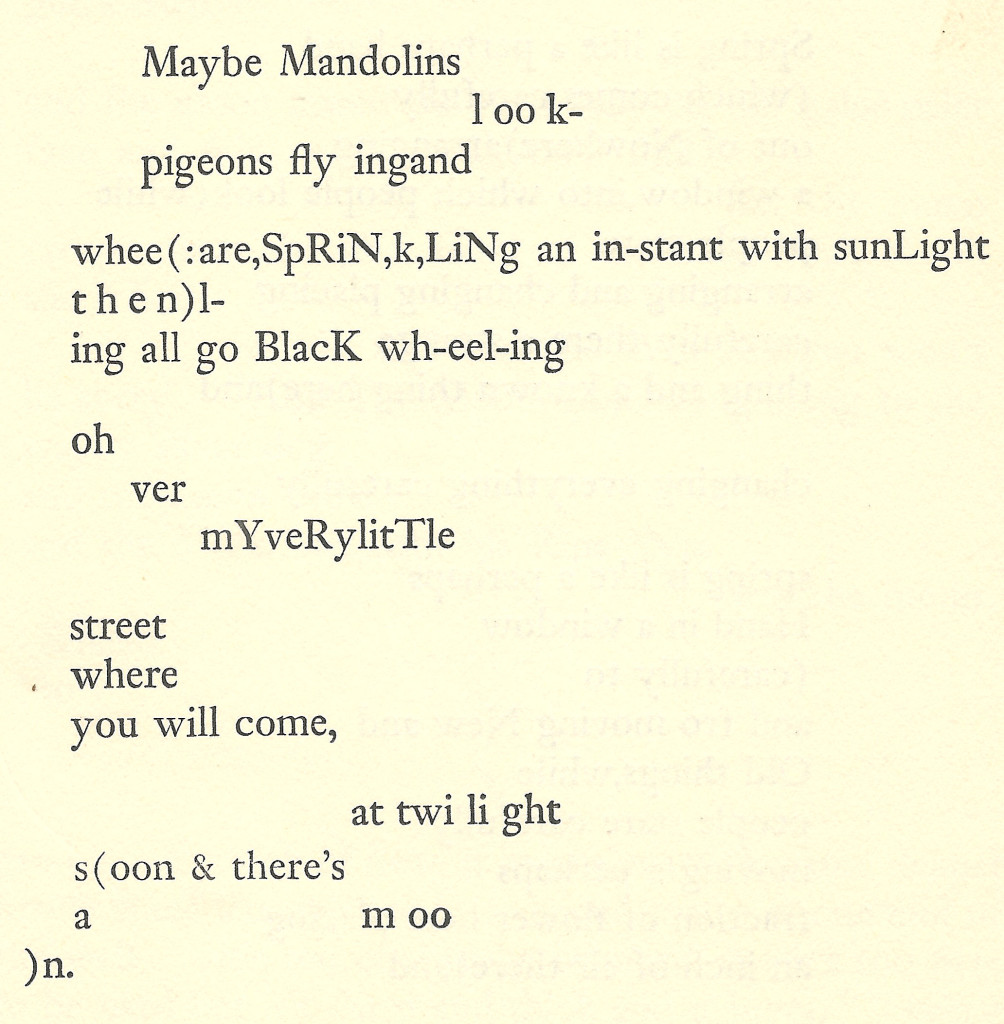
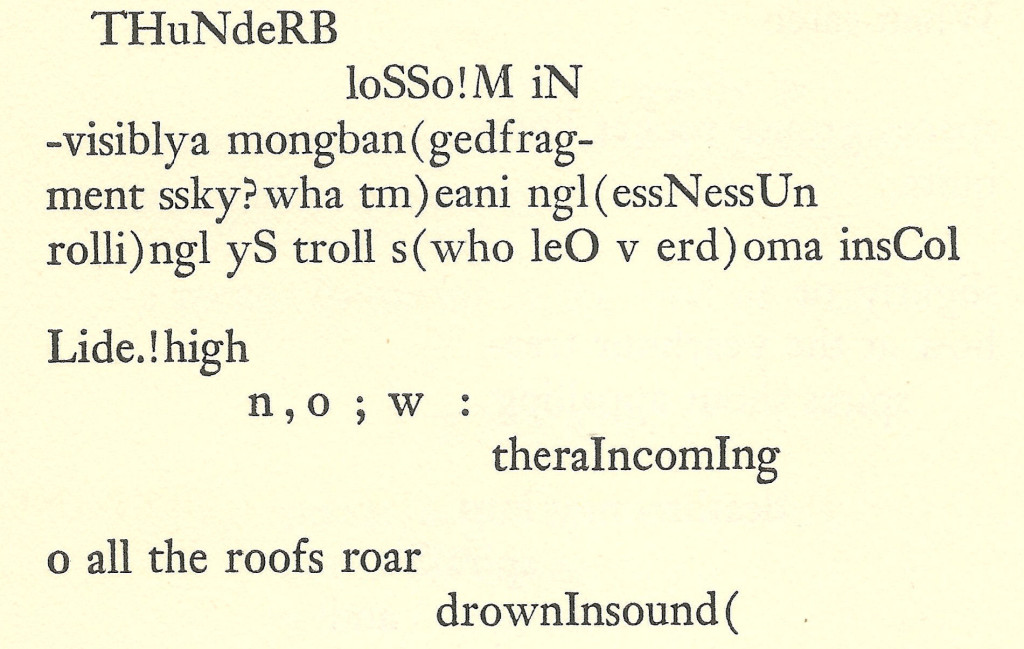





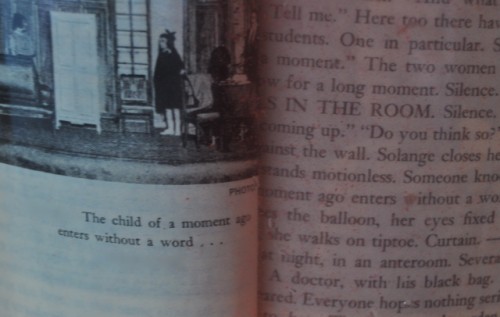






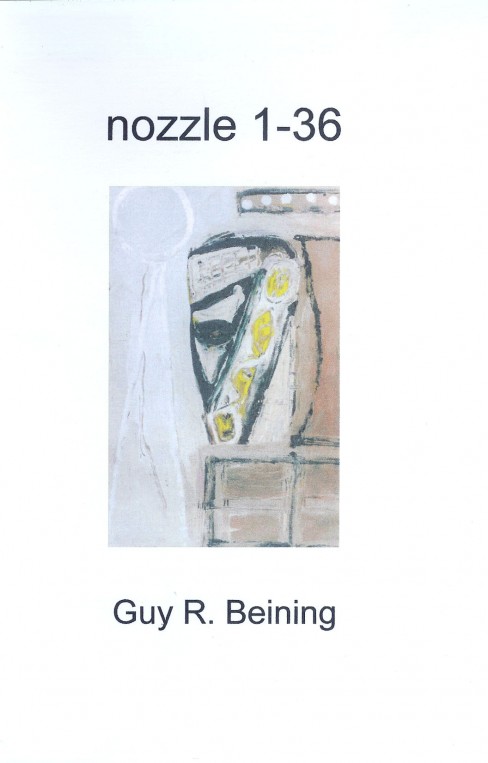
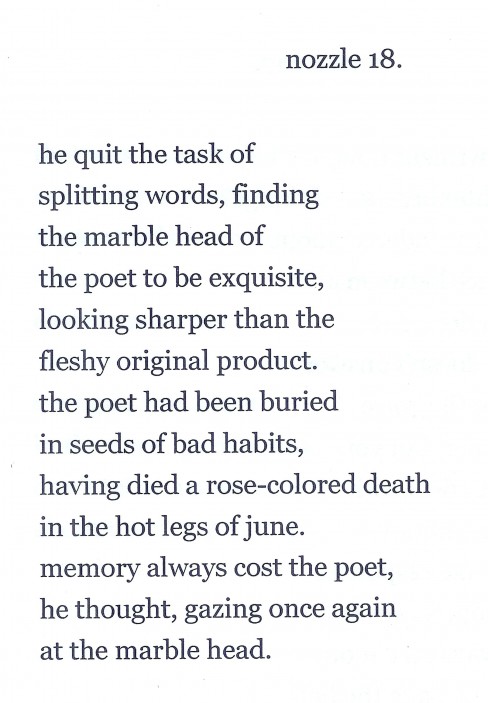


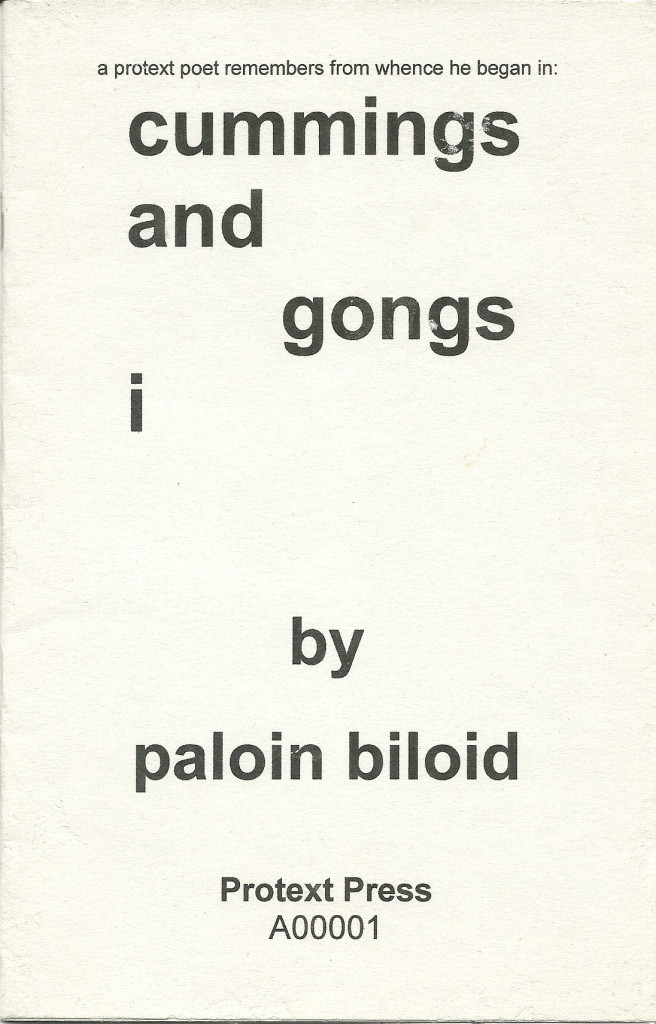



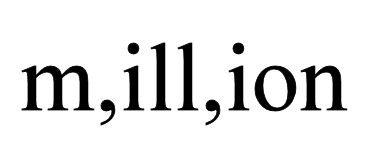


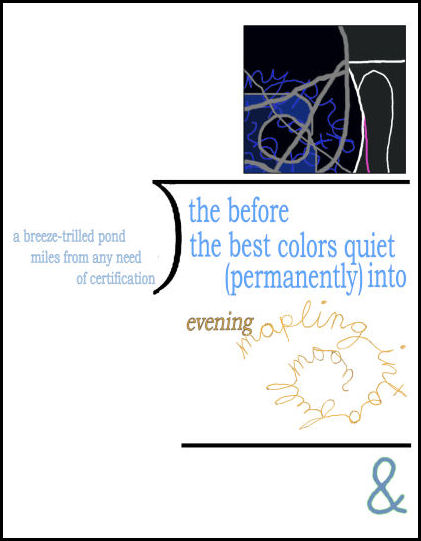
Bob,
I just went through the ENTIRE anthology… what, 166 pages??
non-stop garbage ! You used to be better than this….
Each to his own, Ed.
future looks bleak to me if this is a forecast. do not see much light coming out of the unconsciousness
Haw, I was worried that too much of my three pieces were giving off light out of my unconsciousness!
the scribbling was a side show to the shadow work
Not sure what you’re saying, Karl. What’s the “shadow work?”
shadow — shadow is unconsciousness
Now I need to know what the scribbling was–the texts? You ARE talking about my three pieces, yes? Everything in it is partially from the unconscious mind, and partially subjected to the critical consciousness. it seems to me, although I don’t really care where anything comes from, only that it seems to me to do something worthwhile.